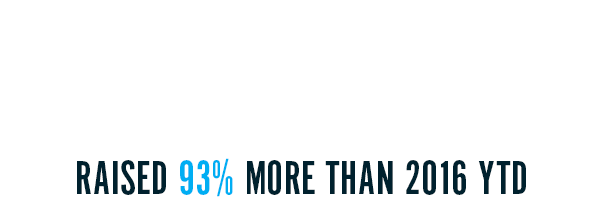THE DAY AND DATE- Thursday, November 8, 2018

As of today, with the Florida recount finished, the following
is a recap of Senatorial Contests that have been concluded:
DEMOCRATS- 22 VICTORIES.
REPUBLICANS- 10 VICTORIES.
INDEPENDENTS- 2 VICTORIES.
1 UNDECIDED.
HOWEVER, SINCE THIS IS NOT A FINAL EVALUATION,
I WILL ONLY PROVIDE THE FOLLOWING INFORMATION:
VOTE TOTALS SO FAR:
DEMOCRATS- 50,404,363 votes (58.5%)
REPUBLICANS- 34,446,263 votes (40.0%)
SOURCE- NEW YORK TIMES.
XXXXXXXXXXXXXXXXXXXXXXXXXXXXXXXXXXXXXXXXXXXXXXXXXXXX
AS WE SEE FROM THE ABOVE STATISTICS, DEMOCRATIC
VOTERS SHOWED UP AT THE POLLS, AND THEY SHOULD
BE PROUD, CONSIDERING:
In 2016 I watched the Media, and the Democratic Party, ignore bogus returns in 6 States that allowed Donald Trump to enter the White House. Well, it's 2018 and they are still finding ways to keep him happy, by ignoring the obvious.
As you probably know by now, the 2018 Mid-Term elections have ended, and the Democratic Party has taken control of the U.S. House of Representatives. (As of right now, the count is 224-197, Source New York Times.)
However, Trump and the Media are emphasizing the fact that the Republicans still control the Senate, as if it is a major accomplishment. The Democrats don't seem to be questioning this assessment.
(As of right now, they have 51 seats, which is the same number held prior to the mid-term elections. Yes, they could add 2-3 seats to this total, with 3 races still not called; Source New York Times.)
Now, this is a victory, but how big is it really?
The 2018 Mid- Term elections had 35 Senate Seats to be contested.
These seats broke down the following way, according to which party occupied the office.
24 Democrats, 9 Republicans, 2 Independent.
(Caucus with the Democrats, and are usually grouped with them.)
That meant that 65 seats could not change hands. What was the make up of the seats not contested?
Republican- 42 Democrat- 23.
The Republicans had a 19 seat advantage before a single vote was cast. These numbers were the result of previous elections, and were not a reflection of Donald Trumps time in office. Now if we assume the Republicans end up with the total of 54 seats, it would mean the following:
THE TOTALS WOULD BE- DEMOCRATS- 21 WINS, REPUBLICANS- 12 WINS, INDEPENDENTS- 2 WINS.
What does this mean?
At the start of election day, The Republicans had a 19 seat advantage. In the end, it was 8 seats.
To keep majority control of the Senate, the Republicans needed to
win 9 of the 35 seats.
To gain majority control of the Senate, the Democrats needed to win 28 of the 35 seats.
With these numbers, exactly who was predicting a Democratic take over of the Senate?
In the end, the Democrats essentially won TWO-THIRDS OF THE SENATE SEATS CONTESTED ON NOVEMBER 6TH.
THIS IS A VICTORY FOR THE REPUBLICANS?
WELL DEMOCRATS, HOPE FOR MANY MORE REPUBLICAN "VICTORIES" LIKE THIS.
As you probably know by now, the 2018 Mid-Term elections have ended, and the Democratic Party has taken control of the U.S. House of Representatives. (As of right now, the count is 224-197, Source New York Times.)
However, Trump and the Media are emphasizing the fact that the Republicans still control the Senate, as if it is a major accomplishment. The Democrats don't seem to be questioning this assessment.
(As of right now, they have 51 seats, which is the same number held prior to the mid-term elections. Yes, they could add 2-3 seats to this total, with 3 races still not called; Source New York Times.)
Now, this is a victory, but how big is it really?
The 2018 Mid- Term elections had 35 Senate Seats to be contested.
These seats broke down the following way, according to which party occupied the office.
24 Democrats, 9 Republicans, 2 Independent.
(Caucus with the Democrats, and are usually grouped with them.)
That meant that 65 seats could not change hands. What was the make up of the seats not contested?
Republican- 42 Democrat- 23.
The Republicans had a 19 seat advantage before a single vote was cast. These numbers were the result of previous elections, and were not a reflection of Donald Trumps time in office. Now if we assume the Republicans end up with the total of 54 seats, it would mean the following:
THE TOTALS WOULD BE- DEMOCRATS- 21 WINS, REPUBLICANS- 12 WINS, INDEPENDENTS- 2 WINS.
What does this mean?
At the start of election day, The Republicans had a 19 seat advantage. In the end, it was 8 seats.
To keep majority control of the Senate, the Republicans needed to
win 9 of the 35 seats.
To gain majority control of the Senate, the Democrats needed to win 28 of the 35 seats.
With these numbers, exactly who was predicting a Democratic take over of the Senate?
In the end, the Democrats essentially won TWO-THIRDS OF THE SENATE SEATS CONTESTED ON NOVEMBER 6TH.
THIS IS A VICTORY FOR THE REPUBLICANS?
WELL DEMOCRATS, HOPE FOR MANY MORE REPUBLICAN "VICTORIES" LIKE THIS.












